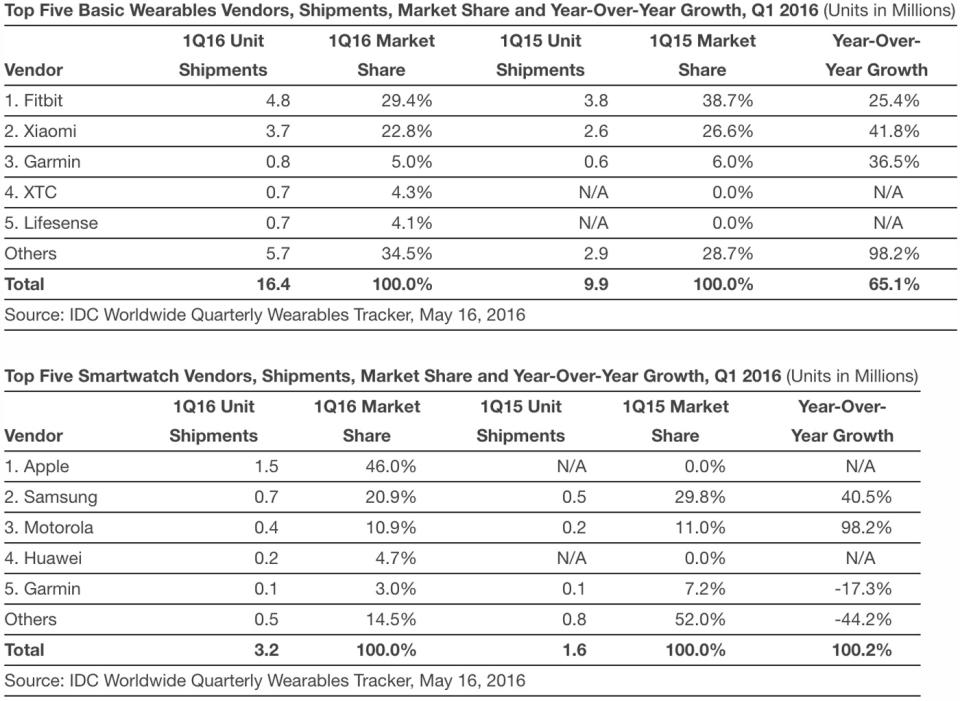Fitbit's lead in the wearable world shrinks due to newcomers
However, it's still well ahead of Apple and other smartwatch makers.

Fitbit has ruled the wearable roost for a while, but it's clear that the activity tracker maker can't become complacent. IDC has released estimates which show that Fitbit lost a significant amount of market share in the first quarter. While its shipments were up 25.4 percent (to 4.8 million), its share plunged from 32.6 percent a year ago to 24.5 percent at the start of 2016. Simply put, the market is much more crowded than it was a year ago -- it has to contend with the Apple Watch, China's BBK and Lifesense, as well as a slew of smaller brands jumping into the field.
Not that some of the other incumbents can complain too loudly. Xiaomi and Garmin also lost share (they're down to 22.8 percent and 5 percent respectively), but their shipments surged by more than a third.
As for smartwatches specifically? Apple was still out in front by a hefty margin, with 46 percent of the high-end wearable market. The next closest was Samsung, which fell to 20.9 percent. With 1.5 million shipments, though, Apple had less than a third of Fitbit's clout -- and that number was a sharp drop from the 3.9 million watches it shipped in the last quarter of 2015. Such a dip isn't surprising (there was no holiday demand to boost sales), but it's notable that Fitbit's unit count didn't fall. It's clearly easier to justify a relatively inexpensive tracker like the Alta outside of gift-giving season than a smartwatch that costs more than twice as much. Apple's price cuts weren't in effect for much of the first quarter, mind you, so it's too soon to say whether or not you'll see a repeat performance this spring.


